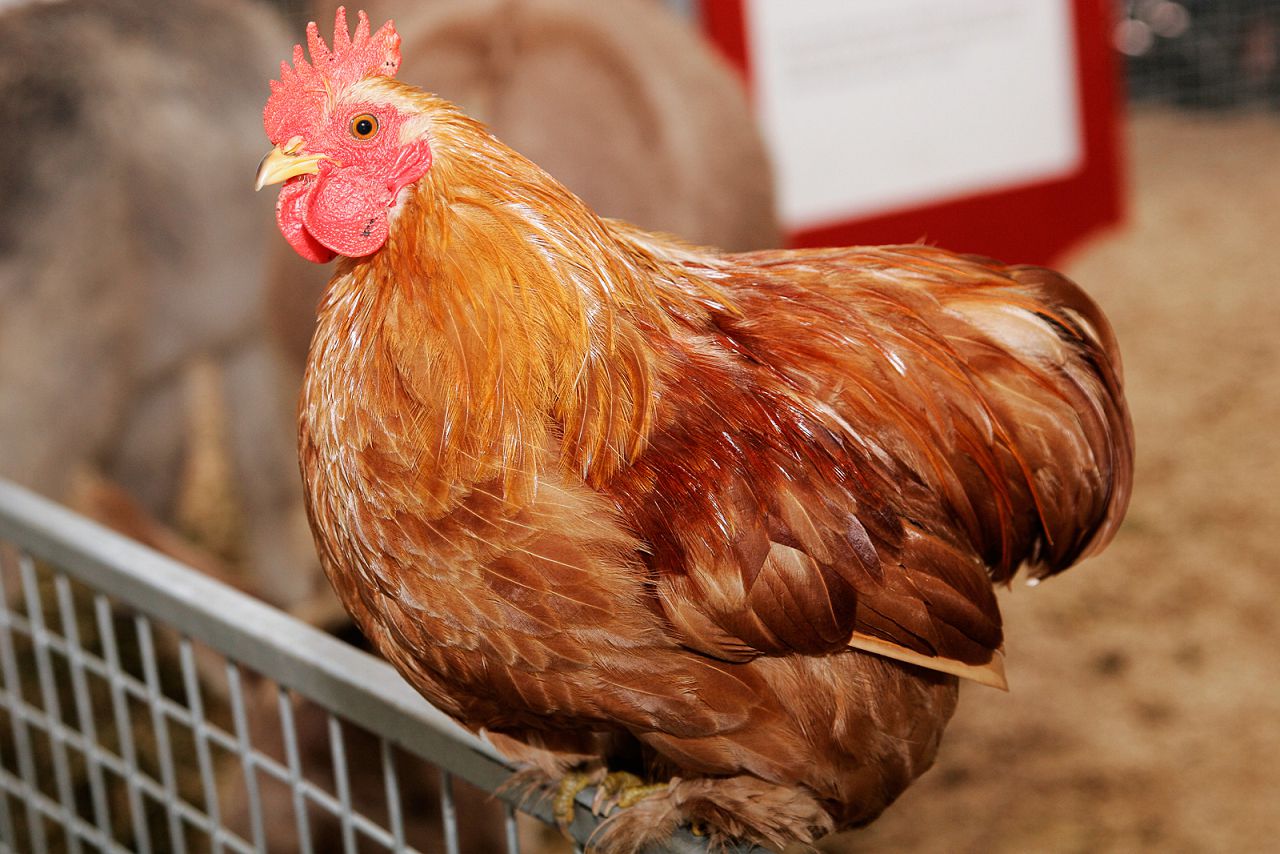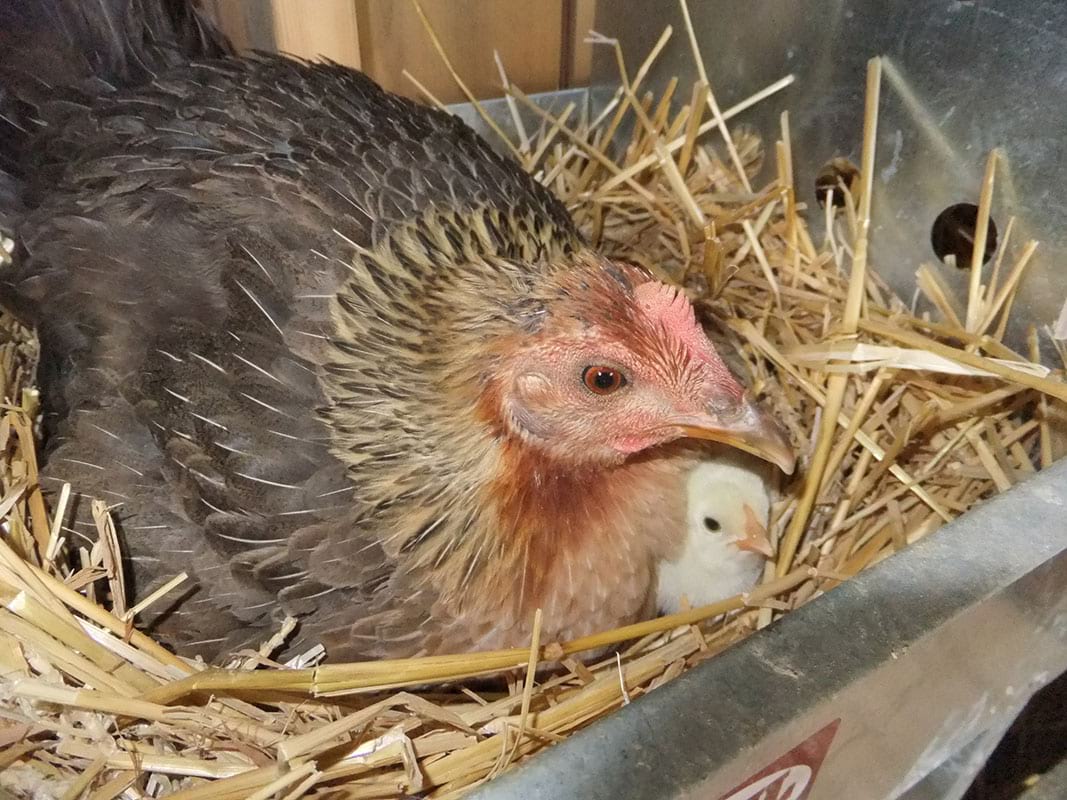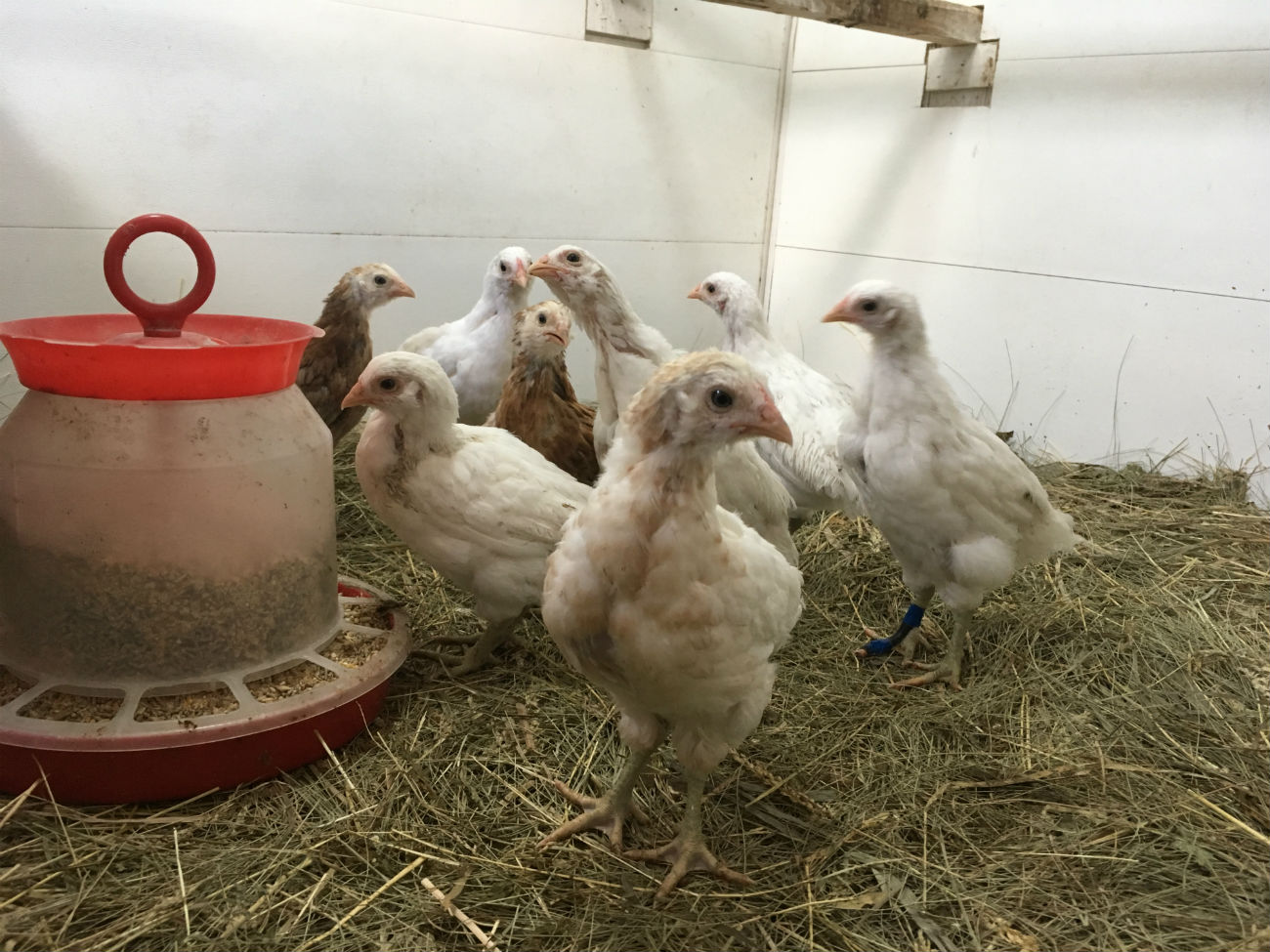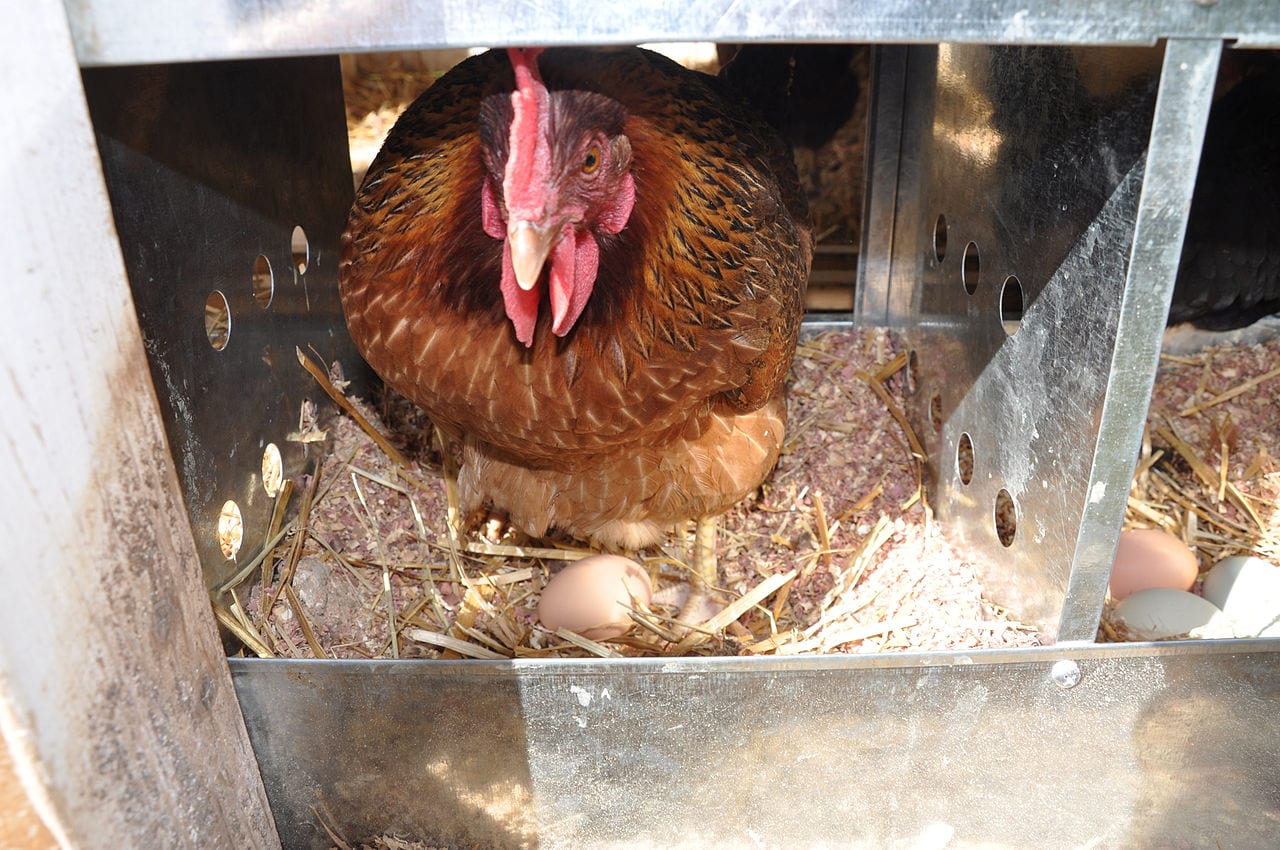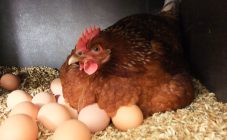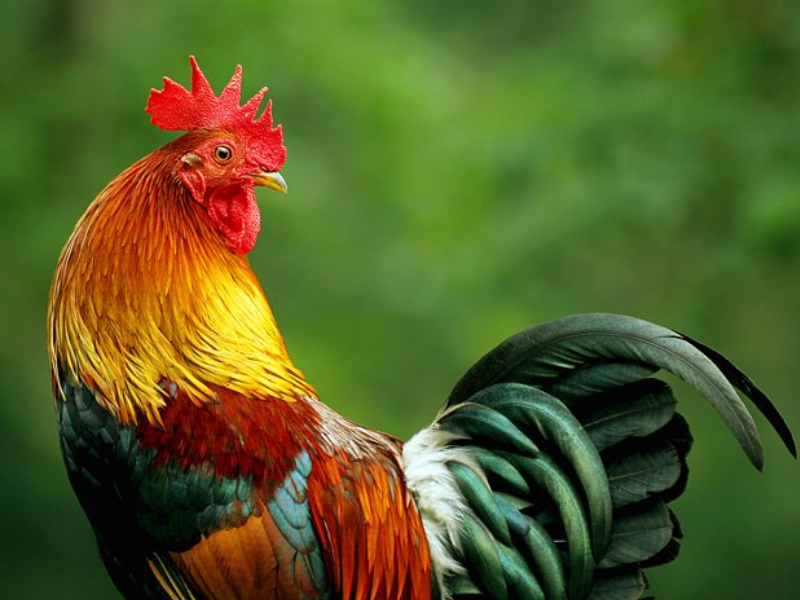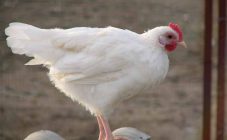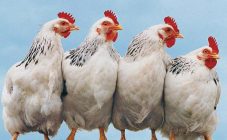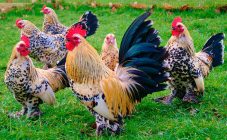Content:
Modern progress in the field of breeding has made it possible to breed new breeds of chickens that do not have an instinct for brooding. The advantage of breeding poultry using modern technologies is the ability to fully control the number of chickens in the livestock, as well as the selection of the best material for breeding the next batch of domestic birds.
However, in the genetics of many breeds, the habits characteristic of chickens have been preserved, which complicate the process of caring for the livestock. It is possible to wean a chicken from clucking by taking certain measures. The publication describes how to wean a chicken to cluck.
Why does the chicken cough
Chickens are considered one of the most silent birds. Such species of birds as ducks and turkeys tend to talk with each other. But chickens can start clucking only a couple of times.
- Clucking serves as a way to notify about the laid egg or informs that the bird wants to sit on it. Usually the hen coughs when it leaves the nest. Together with her, the other chickens begin to "talk", but this does not last long, and the volume of the cry of other pets is much lower.
- The feathered one can begin to cackle with fright. "Neighbors" cluck with her, which lasts continuously for several minutes. The cry, the cause of which is fear, is rather prolonged - for example, if you grab a bird by the wings and lift it off the ground. The presence of stressful situations negatively affects the animal.
Clucking is a characteristic sound when hatching eggs. 3 weeks after the chicks hatch, clucking can serve as a soothing song. When the poultry farmer gives food, the feathered mother begins to bang with her beak, which is also considered a signal for the brood.
Ready to hatch livestock
A chicken can begin to cackle if it is not rooted in time. Such singing will end after placement on a new ovipositor. We will learn what to do if the chicken begins to gasp and whether it needs to be discouraged from this process.
For most of their life, chickens are silent, but the poultry breeder should pay attention to the peculiarities of her singing. Quiet behavior can be caused by an unhealthy herd, which is considered a symptom of a chicken family disease.
The need for hens for livestock
Whether it is necessary to place a hen in a chicken coop depends on the wishes of the poultry farmer, as well as on the characteristics of the breed. Breeding chickens in a natural way means that there is no need for incubation and round-the-clock supervision of young livestock. So, let's consider what to do if a chicken clucks.
To select a suitable hen, you need to monitor the livestock for two days. Compliant individuals with a calm disposition are considered the most suitable for hatching. The rest of the chickens undergo the elimination of such an instinct at the first manifestations.
The bird, selected for incubation and further breeding, sits on the nest with unhatched new livestock.
Settling method
Sitting is considered the most humane method to keep the hen from clucking. In addition, most veterinarians and scientists have found this method to be highly effective.
It is necessary to plant a cackling bird in a cage, the length of the rib of which is 70 centimeters, that is, large in size, which will allow the pet to stay comfortably in it, limiting the area of its activity. The chicken is placed there as soon as it gives the first signs of readiness to hatch the livestock.
There are a number of signs that can help determine if a hen is preparing to hatch eggs:
- abrupt cessation of the active ovipositor;
- plucking feathers from the abdomen and covering the nest with them;
- clucking when approaching a person, as well as avoiding contact with him;
- the desire of a cackling pet to stay in the nest for a long time.
If the above signs appear in any chicken that is part of the livestock, the following actions should be taken:
- Immediate placement of the hen in the cage.
- In the daytime, the cage should be placed in the walking area where other chickens are. Also, the cage can be placed in a well-lit and ventilated place, free from drafts and direct sunlight.
- At night, do not let them go to the rest of the birds, leaving them on the floor in the chicken coop or other suitable place.
- The duration of the bird's stay in such conditions is 3 days. Next, a rooster sits down on the hen in order to accelerate the onset of the ovipositor.
- At night, birds can be released from the fence to roost.
What can be done to stop the chicken from clucking? The entire period of a bird's stay in a closed cage must be accompanied by abundant feeding so that the animal's body is capable of laying.
If the deposition procedure is successful, in the morning you will notice that the hen lays eggs normally, without staying in the nest for a long time. In case of unsuccessful jigging, the period of placing the chicken in the cage can be extended.
In addition, domestic birds must be protected from contact with young livestock.
The use of folk methods
In the old days, poultry farmers practiced less humane but more effective methods than the deposition method. These methods consist in creating a stressful situation for the chicken.
What to do to prevent the laying hens from cawing? Artificial ways to create stressful conditions:
- Dousing with cold water. When the hens are ready to hatch their eggs, their body temperature rises above normal to keep them warm. Dousing chickens with water that is below room temperature will help to naturally lower body temperature.
- Placing the hen in a dark, cool area will also negatively affect hatching instinct. Usually a cool cellar is used for these purposes.
- Restriction in food, which lasts for three days and is accompanied by the placement of the bird in a cage. The duration of the hunger strike depends on the end of the chickens clucking, after which it is released to the livestock and continues to feed in a normal mode.
However, it should be remembered that under the influence of low temperatures, the pet can get sick. Such therapy is especially dangerous in winter.
Prolonged feed restriction can negatively affect the nervous system. All this sometimes leads to the complete absence of the subsequent ovipositor and even to the death of the animal.
Shock therapy weaning
Shock therapy is very stressful for a pet, therefore it is used exclusively in a hopeless situation.
This procedure is carried out using a step-down transformer with clamps.
- The first clamp is located on the hen's crest, the second on the paw.
- 12 Volt voltage is applied for 30 seconds.
- After half an hour, the procedure is performed again.
The complexity of the shock therapy technique is obvious. Thus, kuru is weaned from clucking only if none of the previous methods worked.
Weaning a chicken from clucking is possible if you closely monitor the state of the livestock and the moment when the ovipositor ends - at this stage it is easiest to cope with the problem under consideration. It is not recommended to resort to measures such as fasting or shock therapy.
